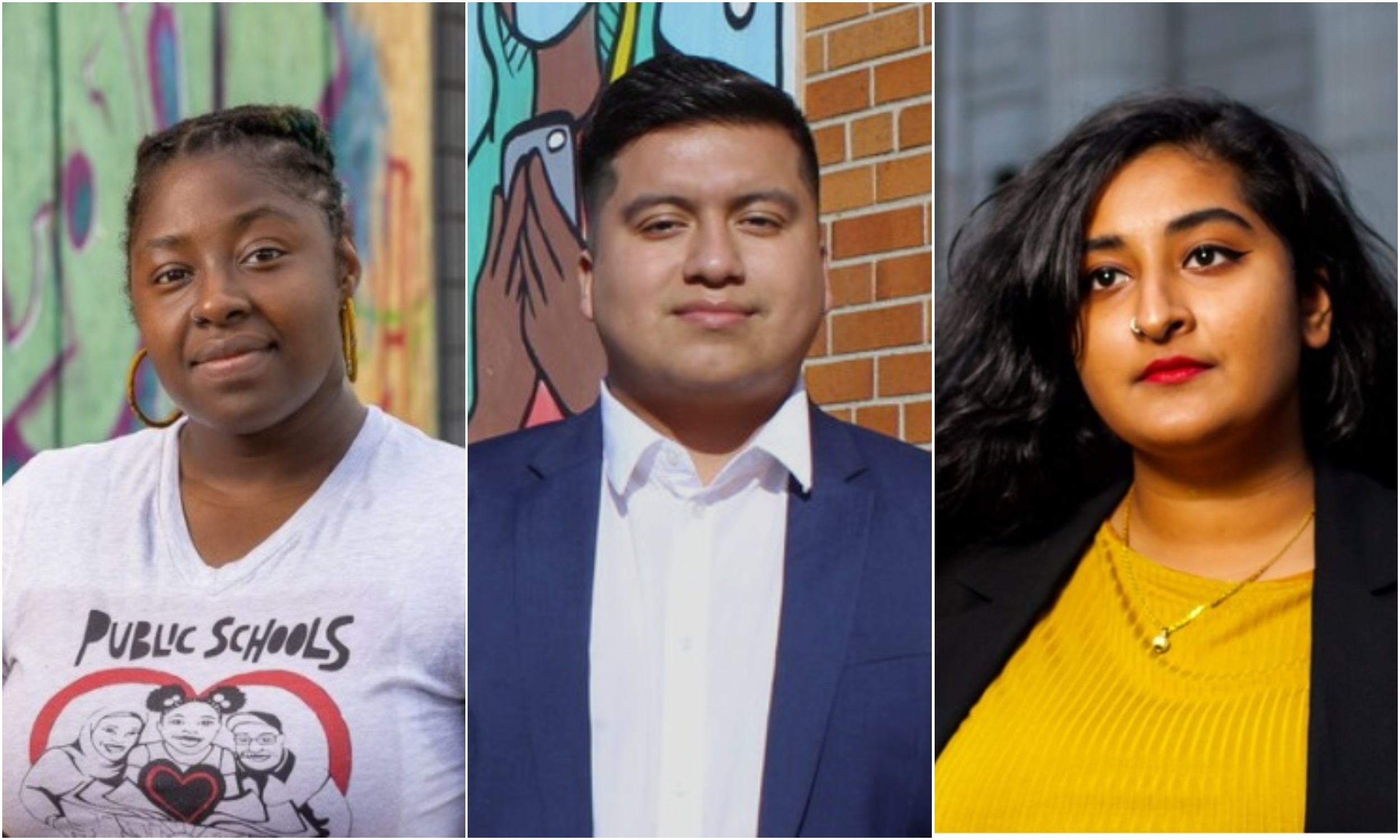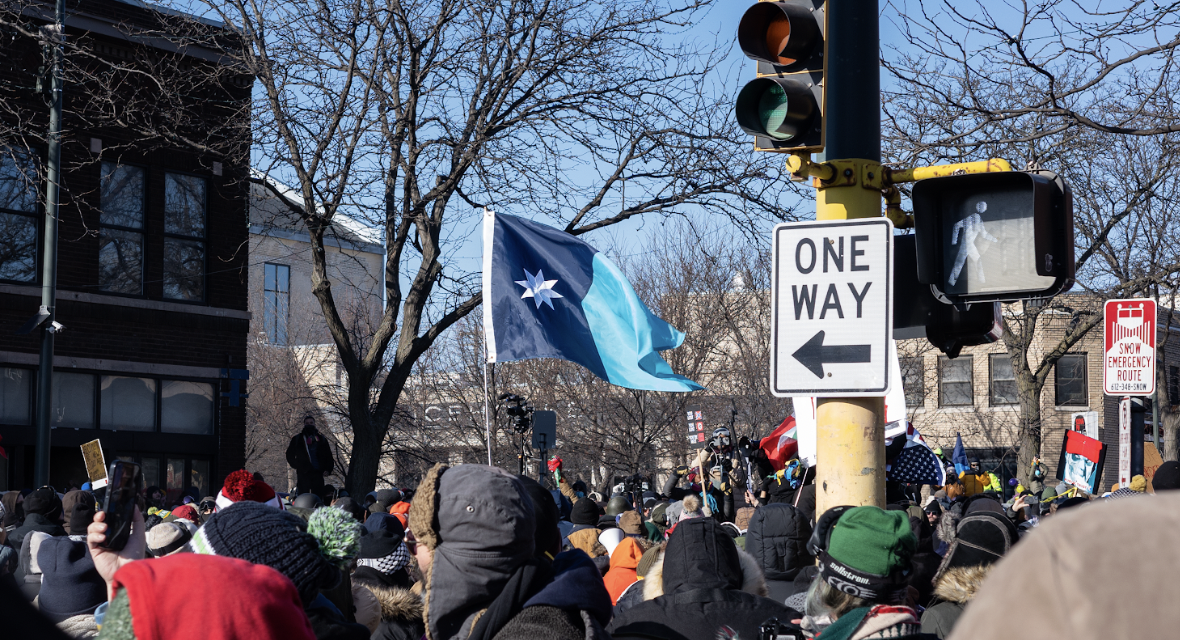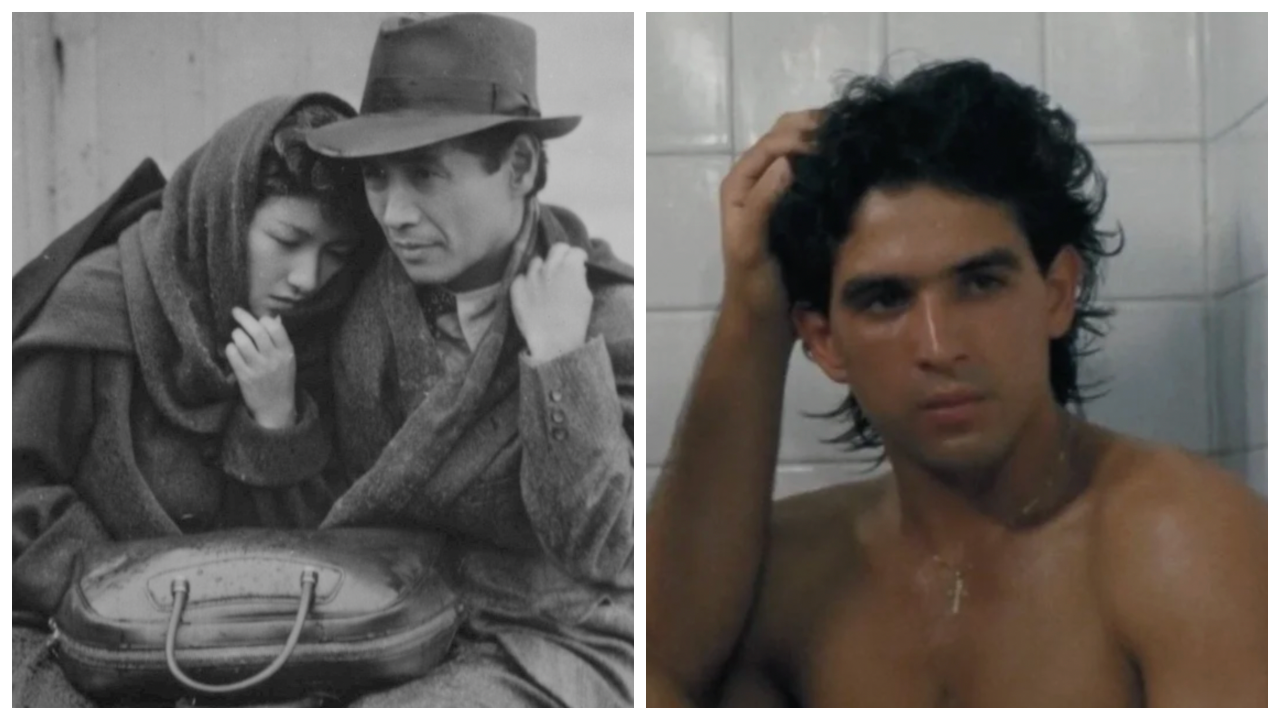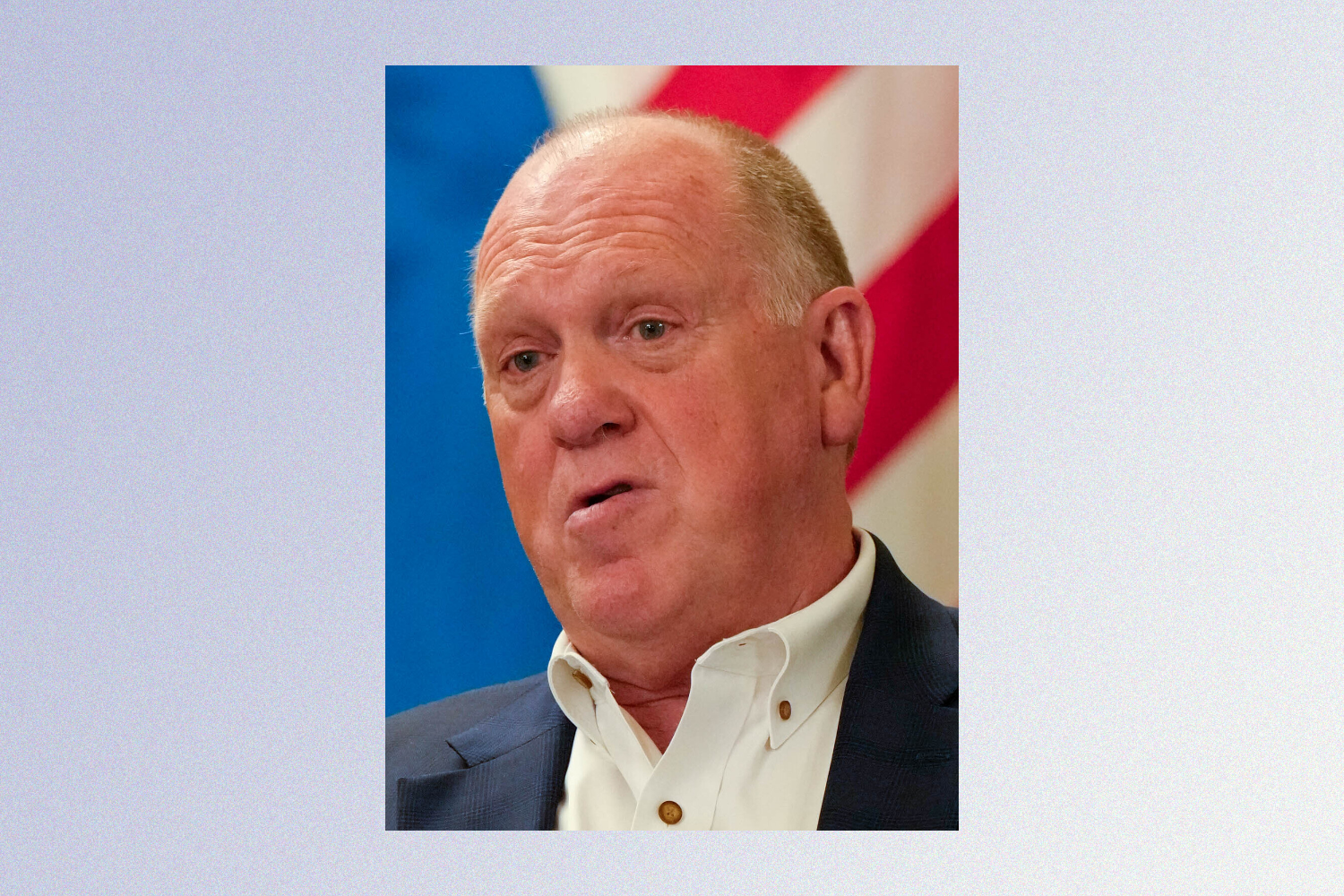Many Minneapolis progressives were left reeling after Tuesday’s election. The centrist mayor got reelected in a landslide, two ballot measures—#1 and #2—went the wrong way for lefties, and the city council boomeranged back to a more conservative makeup.
For the Twin Cities chapter of the Democratic Socialists of America, however, some champagne-popping was in order: All three Twin Cities DSA members running for City Council won their elections.
In Ward 2, 30-year-old Robin Wonsley Worlobah knocked off Cam Gordon, the longtime Green Party incumbent, while holding off Star Tribune-endorsed challenger Yusra Arab by 19 (!) votes. In Ward 9, DSA/DFL-endorsed Jason Chavez, 26, easily claimed the seat vacated by Alondra Cano with a whopping 57% of the vote; noted slickster Mickey Moore, who briefly earned the Strib nod, finished with around 13%. And, in Ward 10, 24-year-old Aisha Chughtai won the seat of retiring Council President Lisa Bender, soaring 16 points past Alicia Gibson who—sensing a trend?—also scored that coveted Strib endorsement.
“Those 19 votes that got us that victory? I guarantee that was our volunteers finding students in the last hour,” Wonsley Worlobah says, noting that many of her younger supporters were politically energized by the presidential runs of Bernie Sanders. “In previous elections in [the U of M area], especially under Cam, most of the students had not been activated in local elections. That meant literally door-knocking all the dorms four times in the last week, letting folks know they have an active role in shaping the future of the city.”
Housing was the central issue for college-age voters, Wonsley Worlobah reports, which presented her campaign with an opportunity to advocate for Question 3, the rent-control ballot measure that ended up passing by about 5%. “Most folks were like, ‘What, I can vote for that?’” Wonsley Worlobah says with a chuckle.
Did Ian Ringgenberg, co-chair of Twin Cities DSA, anticipate a clean, three-for-three sweep?
“No,” he admits with a laugh.
“We try to be strategic,” he continues. “Our membership did a great job of identifying candidates and districts where we can win with open socialists. We did our best to set ourselves up for success, I don’t know if there’s a lot for us to gain if we’re spending our time in Linden Hills talking about a dictatorship of the proletariat.”
Twin Cities DSA members reviewed questionnaires, conducted Q&As, and, ultimately, voted on whether to endorse Wonsley Worlobah, Chavez, Chughtai, and Sheila Nezhad, the latter of whom finished third behind Jacob Frey and Kate Knuth in her bid for mayor.
“We want candidates that will win,” Ringgenberg says. “I think we did a really good job this year.”
Suddenly, with three of 13 seats, the Minneapolis city council has perhaps the strongest socialist bloc anywhere in the country. Five council members constitute the Chicago Democratic Socialist Caucus, though that city’s council runs 50 members deep; four socialists count among New York City’s 51-member council. Following in the civic tradition of Sanders, Burlington, Vermont ranks highest, percentage-wise, with three DSA-aligned members in its seven-member council.
Twin Cities DSA’s three council victories mean the group, which surged from 150 members in 2016 to 1,500 today, is becoming a tangible electoral force. Nationally, DSA membership exploded from around 5,000 in 2015 to almost 100,000 today, due, in large part, to the presidential runs of Sanders and the historically dire economic prospects of younger generations.
“It shows there’s been a galvanizing political revolution since 2016,” Wonsley Worlobah says, name-checking Sanders and Reps. Omar and Ocasio-Cortez. “It means there is a mandate for democratic socialists; people recognize the system of capitalism does not meet their needs, so they’re looking for political spaces that organize working-class people—they don’t feel included in the traditional Democratic Party that’s run by the establishment.”
How effectively socialist politicians wield their newfound power is the next big test.
Turning Question 3 into meaningful rent control is the first issue Wonsley Worlobah and her DSA council colleagues intend to fight for. “Our lives are dictated and made miserable by corporate developers, because most of our disposable income goes toward rent alone,” she says. Transforming policing is still a mandate for the next council, she adds, even after voters rejected the public-safety ballot question and many of the council members who championed it. “There’ll be another George Floyd at the hands of MPD if we don’t do anything,” Wonsley Worlobah says.
There’s no recent template to draw from. Ginger Jentzen of Socialist Alternative made headlines, including the cover of City Pages, when she was the lone socialist vying for the City Council in 2017, though she’d lose narrowly in Ward 3 to Steve Fletcher. (Fletcher, popular among progressives, got bounced Tuesday by moderate Michael Rainville.)
“The $1 million question is: How do you create a durable organization that binds working people together?” Ringgenberg says, stressing the need for increasingly diversified DSA membership. “That’s an incredibly daunting task, but this movement is about giving voice to a latent demand: That the political conversation does not reflect the options we need to survive as a society and planet.”
“I don’t have the answers,” he adds. “If anyone does, we have a general meeting coming up.”







